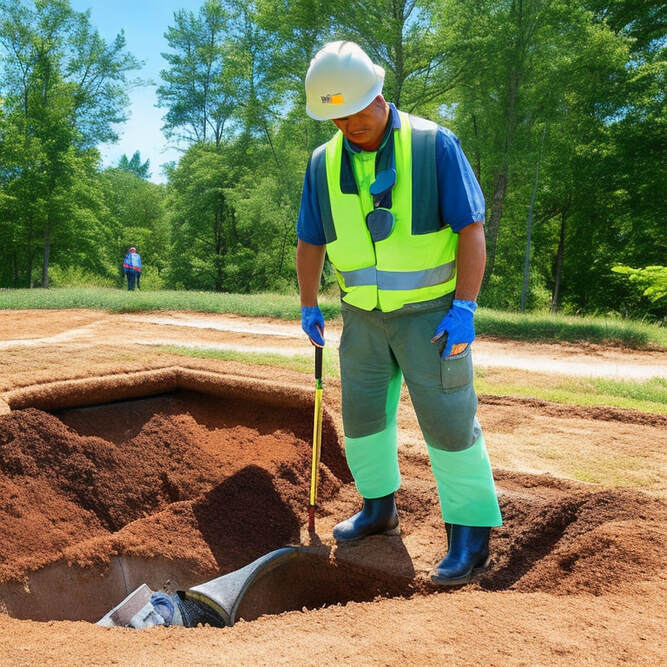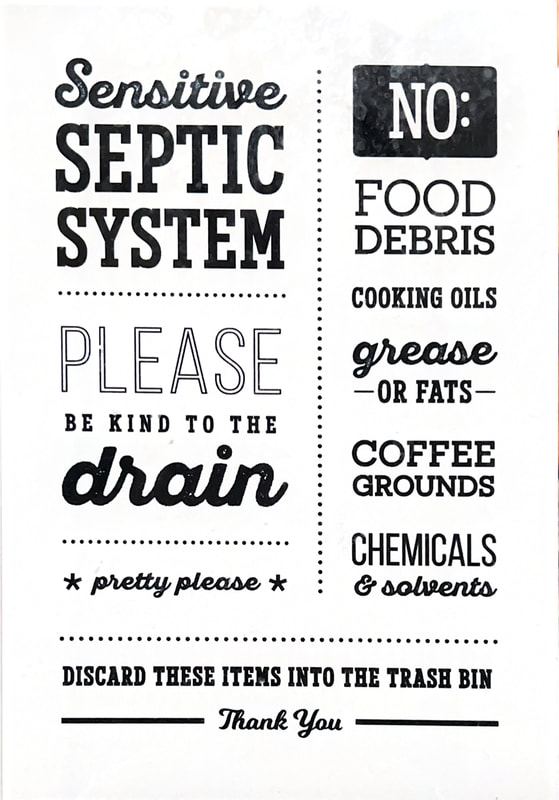If you own a home that is not connected to a municipal sewer system, chances are you have a septic tank that treats and disposes of your wastewater. A septic tank is an underground container that collects the wastewater from your bathrooms, kitchen, and laundry room and separates the solids from the liquids. The solids settle at the bottom of the tank as sludge, while the liquids flow out of the tank into a drainfield, where they are filtered by the soil.
A septic tank is a vital part of your home that requires regular care and maintenance to function properly. If you neglect your septic tank, you risk damaging it and causing serious problems such as sewage backups, slow drains, foul smells, health hazards, and environmental pollution. These problems can be costly and inconvenient to fix and may even require replacing your entire system.
To avoid these issues and extend the life of your septic tank, you should follow these 10 essential tips:
Pump your septic tank every 3 to 5 years
This will prevent the accumulation of sludge and scum that can clog the drainfield and cause system failure. The frequency of pumping depends on the size of the tank, the number of people in the household, and the amount and type of waste generated.
Have your septic tank inspected regularly
A septic service professional should inspect your septic system at least every three years to check for leaks, cracks, corrosion, and other signs of damage. They should also measure the scum and sludge levels in your tank and advise you when to pump it. Keep a record of the inspection and maintenance history of your system.
Use water efficiently
The more water you use, the more water enters your septic system and puts pressure on it. To conserve water, use high-efficiency toilets, faucets, showerheads, and appliances that reduce water consumption. Fix any leaks or drips in your plumbing fixtures as soon as possible. Spread out your water usage throughout the day and avoid doing multiple loads of laundry or dishes at once.
Properly dispose of waste
Do not flush anything down the toilet that is not biodegradable toilet paper or human waste. Avoid putting grease, oil, fat, coffee grounds, egg shells, paper towels, wipes, diapers, sanitary products, cigarettes, chemicals, paints, solvents, medications, or other harmful substances into your drains. These items can clog your pipes, damage your tank, kill the beneficial bacteria in your system, or contaminate the groundwater.
Maintain your drainfield
The drainfield is the area where the liquid waste from your septic tank is released into the soil for natural filtration. To protect your drainfield, do not drive or park vehicles or heavy equipment over it. Do not plant trees or shrubs near it as their roots can interfere with the pipes. Do not cover it with concrete, asphalt, or other impermeable materials that can prevent evaporation and drainage.
Direct water from land and roof drains away from the drainfield
Excess water from rain or snow can saturate the soil around your drainfield and reduce its ability to absorb and treat the wastewater from your septic tank. Make sure that your gutters, downspouts, sump pumps, and drainage systems divert water away from your drainfield and septic tank.
Use biodegradable toilet paper that breaks down easily
Some types of toilet paper are thicker or more resistant to decomposition than others. This can cause them to accumulate in your septic tank and require more frequent pumping. Choose toilet paper that is labeled as biodegradable, septic-safe, or eco-friendly.
Use septic-friendly products
Some household cleaners, detergents, bleach, disinfectants, and other products can harm the bacteria in your septic system that help break down the organic waste. Use these products sparingly and only as directed on the label. Look for products that are labeled as biodegradable, septic-safe, or eco-friendly. You can also use natural alternatives such as vinegar, baking soda, or lemon juice for cleaning purposes.
Add bacteria to your septic system
Bacteria are essential for maintaining a healthy septic system as they digest the organic waste and reduce odors. However, some factors such as heavy water usage, harsh chemicals, antibiotics, or cold weather can reduce the bacterial activity in your system. To boost the bacteria in your septic system, you can use a commercial product such as Muck Munchers that contains natural enzymes and microorganisms that help break down the waste in your tank and drainfield.
Record the location of your septic tank and drainfield
It is important to know where your septic tank and drainfield are located on your property for inspection, pumping, and maintenance purposes. You can use a map, a diagram, or a marker to record the location of your septic system components. You can also ask your septic service provider to help you locate them if you are not sure.
Contact a professional septic service if you notice any signs of failure
Some signs of a failing septic system include sewage backups, slow drains,
By following these simple tips, you can help ensure that your septic system lasts for many years. If you have any questions about septic system maintenance, please contact TopGaHomes. We are a team of experienced professionals who can recommend a septic contractor to help you with all of your septic system needs.
A septic tank is a vital part of your home that requires regular care and maintenance to function properly. If you neglect your septic tank, you risk damaging it and causing serious problems such as sewage backups, slow drains, foul smells, health hazards, and environmental pollution. These problems can be costly and inconvenient to fix and may even require replacing your entire system.
To avoid these issues and extend the life of your septic tank, you should follow these 10 essential tips:
Pump your septic tank every 3 to 5 years
This will prevent the accumulation of sludge and scum that can clog the drainfield and cause system failure. The frequency of pumping depends on the size of the tank, the number of people in the household, and the amount and type of waste generated.
Have your septic tank inspected regularly
A septic service professional should inspect your septic system at least every three years to check for leaks, cracks, corrosion, and other signs of damage. They should also measure the scum and sludge levels in your tank and advise you when to pump it. Keep a record of the inspection and maintenance history of your system.
Use water efficiently
The more water you use, the more water enters your septic system and puts pressure on it. To conserve water, use high-efficiency toilets, faucets, showerheads, and appliances that reduce water consumption. Fix any leaks or drips in your plumbing fixtures as soon as possible. Spread out your water usage throughout the day and avoid doing multiple loads of laundry or dishes at once.
Properly dispose of waste
Do not flush anything down the toilet that is not biodegradable toilet paper or human waste. Avoid putting grease, oil, fat, coffee grounds, egg shells, paper towels, wipes, diapers, sanitary products, cigarettes, chemicals, paints, solvents, medications, or other harmful substances into your drains. These items can clog your pipes, damage your tank, kill the beneficial bacteria in your system, or contaminate the groundwater.
Maintain your drainfield
The drainfield is the area where the liquid waste from your septic tank is released into the soil for natural filtration. To protect your drainfield, do not drive or park vehicles or heavy equipment over it. Do not plant trees or shrubs near it as their roots can interfere with the pipes. Do not cover it with concrete, asphalt, or other impermeable materials that can prevent evaporation and drainage.
Direct water from land and roof drains away from the drainfield
Excess water from rain or snow can saturate the soil around your drainfield and reduce its ability to absorb and treat the wastewater from your septic tank. Make sure that your gutters, downspouts, sump pumps, and drainage systems divert water away from your drainfield and septic tank.
Use biodegradable toilet paper that breaks down easily
Some types of toilet paper are thicker or more resistant to decomposition than others. This can cause them to accumulate in your septic tank and require more frequent pumping. Choose toilet paper that is labeled as biodegradable, septic-safe, or eco-friendly.
Use septic-friendly products
Some household cleaners, detergents, bleach, disinfectants, and other products can harm the bacteria in your septic system that help break down the organic waste. Use these products sparingly and only as directed on the label. Look for products that are labeled as biodegradable, septic-safe, or eco-friendly. You can also use natural alternatives such as vinegar, baking soda, or lemon juice for cleaning purposes.
Add bacteria to your septic system
Bacteria are essential for maintaining a healthy septic system as they digest the organic waste and reduce odors. However, some factors such as heavy water usage, harsh chemicals, antibiotics, or cold weather can reduce the bacterial activity in your system. To boost the bacteria in your septic system, you can use a commercial product such as Muck Munchers that contains natural enzymes and microorganisms that help break down the waste in your tank and drainfield.
Record the location of your septic tank and drainfield
It is important to know where your septic tank and drainfield are located on your property for inspection, pumping, and maintenance purposes. You can use a map, a diagram, or a marker to record the location of your septic system components. You can also ask your septic service provider to help you locate them if you are not sure.
Contact a professional septic service if you notice any signs of failure
Some signs of a failing septic system include sewage backups, slow drains,
By following these simple tips, you can help ensure that your septic system lasts for many years. If you have any questions about septic system maintenance, please contact TopGaHomes. We are a team of experienced professionals who can recommend a septic contractor to help you with all of your septic system needs.



